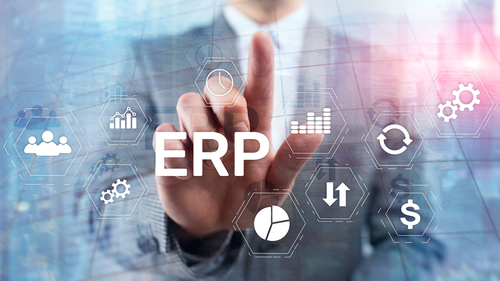What to Look for When Choosing an MRP Program

You’re a small to mid-size manufacturing business hoping to reduce your costs and work more efficiently. You already recognize the advantages that a Manufacturing Resource Planning (MRP program) could provide for your company but, like many smaller operations, your budget doesn’t allow for large upfront costs. And you’re not really sure what to look for in a system.
Does that mean you’re out of luck? Not at all! With a bit of planning and research, you can have a system in your shop that can rival those of the world’s largest corporations.
So get ready to do some shopping. You’ll be surprised at how easy it can be when you know what to look for. Here are a few crucial things to keep in mind:
Find a portable cloud-based program that’s easy to use
Think about those who will use this powerful tool you’re purchasing–practically everyone in the organization! So, it needs to be accessible, even to your sales staff when they visit their customers to give them scheduling updates or review production changes with them. A cloud-based system with plenty of access points fills the bill.
And don’t forget, not everyone who will be using this MRP program is an IT specialist. As a matter of fact, many of the manufacturing workers on the shop floor probably don’t have much tech know-how at all. So, it needs to be easy to learn and use.
Also, make sure you’re purchasing your system from someone who offers comprehensive training and support. An MRP system that brings enormous value to your company should be easy to use, but it’s by no means simplistic. Your software vendor should be a partner who is there to assist you until you’re comfortable and familiar with your purchase.
It all starts with sales and order management
You can give your sales force a decided advantage over the competition when you equip them with a cloud-based MRP program. It all begins with giving the customer an accurate estimate of price and delivery. With instant access to the most recent material price lists and lead times, along with workstation and workforce capacity information in real time, they will never again be making promises on a hope and a prayer but rather on solid, accurate information.
After the job is in production, there’s never a need for your salespeople to check with the production manager so they can give your customers an update. Everyone on the salesforce has that information at the click of a button. And they can even bring their customers up to date while visiting their office, thanks to the portability of the cloud-based system.
A top-tier system will also manage your customer contacts, provide customer and manufacturing sales reports, and do invoicing.
Inventory control should be a money-saving feature
With all the moving parts in a quality MRP system, it’s difficult to point to one feature as the most important. But inventory control, which is directly responsible for saving your organization money, is near the top. Because you always have a clear picture of customer demand with MRP, you don’t waste space and money with excess inventory.
Knowing how much you have (in real time), where it’s located, how much is already booked, and when more is expected to come in, enables you to fulfill orders and eliminate backorders—a big plus for customer service.
Also, before buying any solution, confirm that it has these critical inventory management features at a minimum:
- Low inventory alerts
- Multiple locations of one part
- Lot label printing
- Stock planning
- Live inventory adjustments
Production planning means never overbooking your plant again
Remember those times you accepted work when it appeared you had the capacity to handle it? Can you also recall the panic you felt when you realized that two long-running operations needed to be completed on the same machine at the same time?
The MRP system enables you to schedule operations through the shop without the worry of double-booking workers or workstations. Materials will be available, and the software will automatically notify your purchasing department. Workers on the shop floor will have clear instructions on which operations must be completed and in what order. All of this happens from the kiosk, which means there are no more misplaced routing sheets.
While most of today’s manufacturing software will help your company plan work through the shop, make sure the MRP system you buy also includes worker skillset mapping, click-and-drag rescheduling, and manufacturing cost tracking.
Procurement should be on auto-pilot
Your MRP program should know what needs to be procured. Based on demand from sales and production coupled with low-inventory alerts, the software should display purchase requirements. Make sure you purchase a system that automatically creates purchase orders from that information.
The best systems on the market will track your orders and make purchasing suggestions. Having all the vendor information in one location–current pricing, terms, and lead times–simplifies what was formerly a cumbersome process.
Look for systems that also have material forecasting and partial delivery tracking.
Make sure your MRP program has seamless integration
Integration with accounting software such as QuickBooks Online and Xero is critical to saving you the extra work of double entry. Your new system should also assimilate with popular e-commerce platforms like Magento and Shopify, along with Customer Relationship Management software like Pipedrive CRM.
And your MRP program should include Application Programming Interface (API) for custom integration.
Financials are gathered from throughout the system
While the CRM’s biggest advantages will be felt on the shop floor, much of the financial information will gather on the top floor. Cost-profit information and cost-of-goods-sold reports are automatically calculated from shop-floor reports and are available to management, as always, in real time.
No need for you to compromise
You can have all the features listed here without breaking the bank. MRP program are not only affordable, but they will transform your small manufacturing business into a smooth-running engine. The sooner you bring one on board, the sooner you can reap the benefits!



